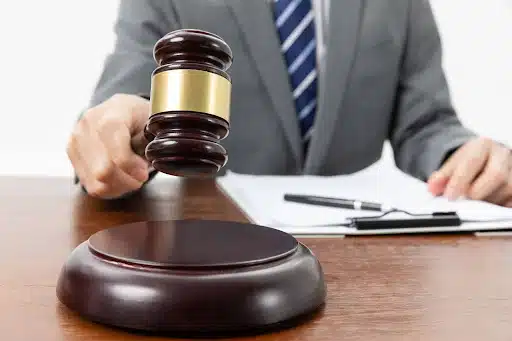
In Florida, a default judgment is a court ruling against someone who doesn’t respond to a lawsuit. It results in automatic legal consequences and can deeply affect the non-responding party. This commonly occurs in civil cases, such as small claims disputes, where the defendant’s non-response results in an automatic judgment in favor of the plaintiff. When a defendant does not respond within the given timeframe, the court grants relief to the plaintiff, typically based on a liquidated money demand that specifies the exact amount sought. A default judgment allows the plaintiff to receive the requested relief without needing a full trial.
For the defendant, this means waiving their right to defend themselves in court, which can lead to severe consequences, including wage garnishment, liens on property, and lasting financial liabilities. While default judgments no longer directly appear on credit reports, they can still affect credit scores by appearing in public records and impacting the defendant’s ability to secure loans. Understanding the full scope of these consequences highlights the importance of timely legal action.
Key Takeaways
- A Florida default judgment is a court order issued against a party that fails to respond to a lawsuit, granting the plaintiff relief without requiring a full trial.
- The process for obtaining a default judgment involves filing for default, requesting a judgment before a judge, and ensuring proper service of legal documents.
- Default judgments can severely impact the defendant’s financial situation, including potential wage garnishment, and can have long-lasting effects on credit despite recent reporting changes.
What is Florida Default Judgment?

A default judgment is a court order entered against a party who failed to respond to a lawsuit. In Florida, default judgments are typically made when a defendant doesn’t respond to a suit within the prescribed time frame. This could happen in various scenarios, including when a defendant does not appear at a small claims trial, leading to an automatic default.
When a defendant fails to respond, the court can grant a default judgment based on the plaintiff’s claims. The court considered the liquidated damages included in the complaint, which are specific amounts claimed by the plaintiff. This often means the court awards the plaintiff the relief they sought without the need for a full trial.
Default judgments serve as a critical mechanism in civil lawsuits to ensure that cases can proceed even when one party does not participate. However, for the defaulting party, it means waiving their right to defend themselves in court, leading to potentially severe consequences such as financial liabilities or other court orders. Grasping the criteria for default judgments and the consequences of not responding is crucial for anyone engaged in a legal conflict.
Understanding the process and consequences of default judgments is crucial for anyone involved in a legal dispute. Failing to respond can result in significant financial and legal repercussions, underscoring the importance of timely legal action.
The Process of Obtaining a Default Judgment in Florida
Securing a default judgment in Florida involves a structured process governed by the Florida Rules of Civil Procedure. The procedure involves two main steps: filing for clerk’s default and then requesting a default judgment. Initially, the plaintiff must file the necessary documents, provide proper notice to the defendant, and include required affidavits.
If the defendant was properly served and the response deadline has passed without any action on their part, the plaintiff can apply for a clerk’s default. Once the clerk’s default is entered, or if the defendant filed something in the case but not a legal response, the plaintiff can then seek a default judgment. This process ensures that the legal case can move forward even when one party fails to participate.
In Florida, obtaining a default judgment involves two main steps: filing for a clerk’s default and requesting a default judgment. This process, governed by the Florida Rules of Civil Procedure, ensures that a case can proceed even if one party fails to participate.
Filing for Clerk’s Default
The journey to obtaining a default judgment starts with proper “service of process.” The plaintiff must serve the complaint and summons to the defendant, ensuring these documents are delivered correctly and within the stipulated time frame. The summons will instruct the defendant to answer the complaint or petition within a specific timeframe, which is crucial for the process to move forward.
If the defendant fails to respond within the time set by Florida procedural rules, the plaintiff must file the required claim form to request a clerk’s default. This action is crucial as it formally recognizes the defendant’s failure to respond, enabling the case to move forward towards a default judgment. Ensuring proper service of documents is critical, as mistakes here can delay the process or invalidate the request.
Once a clerk’s default is entered, it paves the way for the plaintiff to seek a default judgment. This phase ensures that the court addresses the plaintiff’s claims, even without the defendant’s involvement. Knowing these initial steps and the importance of timely and accurate service can significantly affect the outcome of a civil lawsuit.
Requesting Default Judgment
After obtaining a clerk’s default, the next step is to request a default judgment. This involves presenting the case to a judge who will review the circumstances and determine if a default judgment is warranted. Unlike the clerk’s default, which is administrative, a default judgment is a more formal court order issued by a judge.
If the defendant filed a response, the judge will consider whether the defendant’s response met the procedural rules. If it did not, or if no response was filed, the judge may grant a default judgment. This step often involves a hearing, and the judge can ask questions to clarify any points.
Once the judge is satisfied with the evidence and the default judgment criteria are met, they will issue a final judgment, which includes the judge’s signature. This court order enforces the plaintiff’s claims, allowing them to seek remedies such as financial compensation or other legal relief.
Jurisdictional Variations in Default Judgments
Default judgment procedures can vary in other states or in federal court. In the U.S., each state has unique rules and regulations for default judgments, requiring a good understanding of the local legal framework. These variations can impact how cases are handled and the criteria used to grant a default judgment.
For legal practitioners and defendants, understanding these jurisdictional differences is crucial. It ensures that they can navigate the default judgment process effectively, knowing what to expect and how to respond in different legal environments. This knowledge is particularly important for those involved in multi-state litigation or dealing with cases that span different jurisdictions.
The Effect of Default Judgments in Florida
In Florida, a default judgment operates just like any other judgment. Once entered, all defenses to the case are waived, meaning the defendant loses the opportunity to contest the claims. This can have significant implications, including the requirement for the judgment debtor to provide financial disclosures about their income and assets.
Default judgments can lead to severe consequences for the debtor, such as wage garnishment or liens against non-homestead real estate. In some cases, these judgments can be discharged in bankruptcy, although they often accumulate interest and can last indefinitely. Being aware of these impacts helps defendants evaluate their options and take steps to mitigate potential damages.
Understanding these potential consequences is crucial for defendants to take steps to mitigate damages and seek appropriate legal remedies. Responding promptly to legal notices is essential to avoid the damaging effects of a default judgment.
Default Judgments in Other Countries
The process for obtaining a default judgment differs in other countries, reflecting their unique legal frameworks. In England and Wales, for example, the plaintiff can request a default judgment if the defendant fails to respond within a specified timeframe, typically two weeks.
If the defendant does not respond within this period, the plaintiff can ask for a judgment in default. After an additional four weeks without a response, a default judgment can be entered. These procedures underscore the need to understand local legal requirements and how they compare to those in the U.S., ensuring all parties are well-prepared regardless of the jurisdiction.
These international procedures emphasize the need for legal practitioners to understand the specific legal frameworks of the jurisdiction they are dealing with. In some countries, additional steps may be required before a default judgment can be issued, such as confirming that the defendant has been properly served. These procedural differences highlight the importance of knowing the local requirements to avoid mistakes and delays in the litigation process. For those engaged in cross-border cases, understanding these distinctions can help ensure that the default judgment process is carried out correctly, whether within the U.S. or abroad.
Avoiding Default Judgment

To avoid a default judgment, defendants must respond to the legal papers served on them promptly. Taking quick action is crucial, as procrastination or lack of legal representation can lead to default judgments, leaving defendants with little recourse.
Being proactive and seeking legal advice early can significantly reduce the risk of default judgments. Recognizing the importance of timely responses and the repercussions of inaction helps defendants navigate the legal process more effectively.
By recognizing the importance of swift action and the potential consequences of inaction, defendants can significantly reduce the risk of a default judgment. Early engagement with the legal process not only provides the chance to address the case effectively but also helps avoid the long-term repercussions of such judgments, including financial liabilities and damage to credit.
Setting Aside a Default Judgment
If a default judgment has already been awarded, there are still options available. A defendant can file a motion to set aside the judgment, provided they can demonstrate a valid excuse for their absence, such as error, excusable neglect, or fraud by the plaintiff.
To successfully set aside a default judgment, one must demonstrate that the plaintiff’s request was made promptly and there are valid reasons for the failure to respond. This process can provide a second chance for defendants to present their case and avoid the severe consequences of a default judgment.
Setting aside a default judgment offers defendants a second chance to present their case. It is important to act quickly, as delays or a lack of valid reasons could result in the court refusing to reconsider the judgment. Understanding the process and acting swiftly can greatly impact the outcome of the case.
Filing a Motion to Set Aside Default Judgment
A motion to set aside a default judgment is a legal request to overturn the judgment based on valid reasons. Defendants must provide evidence justifying their nonappearance in court, such as excusable neglect or other legitimate excuses.
A robust case with supporting evidence is vital for the success of such a motion. Demonstrating a good reason for the failure to respond can persuade the court to reconsider the judgment and allow the defendant another opportunity to defend themselves.
This motion provides defendants with another chance to present their side of the case, potentially avoiding the serious consequences of a default judgment. If granted, the case is reopened, and the defendant can proceed with the legal process. Being prompt and presenting a solid argument are key to ensuring the motion is granted.
Protections for Military Members Against Default Judgment
Active duty military members have additional protections against default judgments under the Servicemembers Civil Relief Act (SCRA). This act provides military members the right to verify their status when involved in a lawsuit, ensuring they are not unfairly penalized due to their service obligations.
Before pursuing a default judgment, verifying the defendant’s military status is crucial to comply with SCRA requirements. This step ensures that active-duty service members are adequately protected and can defend themselves in legal proceedings.
If a defendant is active-duty military, they have the right to request a stay of proceedings or ask for a postponement to allow them to fully participate in the lawsuit. Plaintiffs must verify the military status of the defendant before seeking a default judgment, as failure to do so can violate the SCRA and lead to legal consequences.
Impact of a Default Judgment on Credit

A default judgment can significantly affect an individual’s credit, even though major credit bureaus stopped reporting them on consumer credit reports in 2017. While the judgment itself may not appear on the credit report, lenders can still access public records to find details about any judgments. This means that even though the judgment is not listed, it can still influence a person’s ability to secure loans or obtain credit.
Although judgments no longer directly impact credit scores, the debt remains owed. Default judgments can last indefinitely, accumulating interest over time. This can have long-term financial consequences for the debtor, particularly when it comes to borrower eligibility and the ability to negotiate favorable loan terms. The longer the judgment remains unpaid, the more financial strain it can cause.
Understanding the ongoing impact of default judgments is essential for individuals managing their credit. Addressing these judgments early, either by paying off the debt or seeking legal avenues to challenge or settle the judgment, can help mitigate its lasting effects on financial health.
Summary
Default judgments have a significant impact on credit, even though they are no longer reported on consumer credit reports by major credit bureaus since 2017. However, lenders can still access public records to find judgments, which may affect borrowing capabilities despite judgments not being on credit reports.
The absence of a judgment on a credit report does not indicate that the debt is not owed. Judgments can last indefinitely and accumulate interest, impacting the debtor’s financial situation.
Staying informed and prepared is key to navigating the legal process effectively. Whether you’re trying to avoid a default judgment or seeking to set one aside, understanding your rights and obligations will give you the best chance to protect your interests and move forward with confidence.
If you’re facing a default judgment or need assistance with your case, Ziegler Diamond Law is here to help. Contact us today to schedule a consultation and ensure your legal rights are fully protected.
Frequently Asked Questions
What is a default judgment?
A default judgment is a court order issued when a party does not respond to a lawsuit, resulting in the plaintiff receiving the requested relief. This reinforces the importance of timely responses in legal matters.
How can I avoid a default judgment?
To avoid a default judgment, it is crucial to respond promptly to any legal documents you receive and seek legal advice to navigate the process correctly. Taking these actions will help protect your interests effectively.
Can a default judgment be set aside?
A default judgment can indeed be set aside if the defendant provides a legitimate reason, such as an error, excusable neglect, or evidence of fraud by the plaintiff. It is important for the defendant to act promptly in seeking this relief.
Do default judgments affect my credit?
Default judgments do not affect your credit report directly, but lenders can still access them through public records, potentially impacting your ability to borrow.
What additional protections do military members have against default judgments?
Military members benefit from the Servicemembers Civil Relief Act (SCRA), which provides protections against default judgments by allowing them to verify their status and preventing unfair penalties due to their service obligations. Thus, the SCRA ensures that active duty personnel are afforded fair treatment in legal matters.






